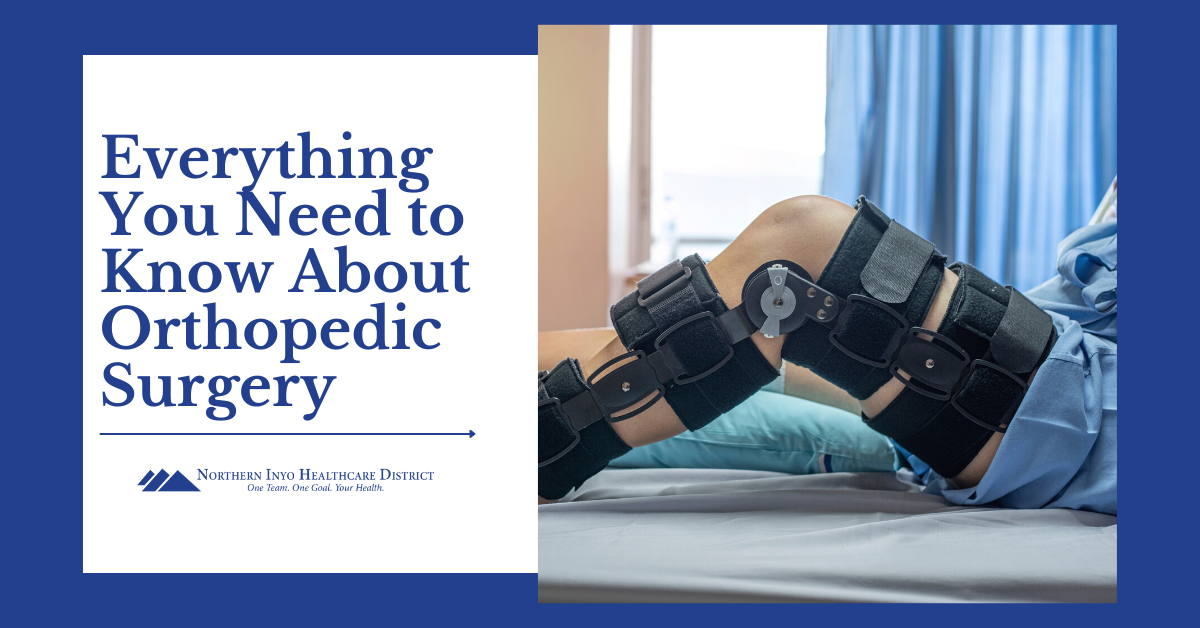Everything You Need to Know About Orthopedic Surgery
- Category: Blog
- Posted On:

What You Should Know Before Your Procedure
Having a surgical procedure can be an overwhelming experience, to say the least. However, knowing how to prepare can give peace of mind. Here’s what you should know ahead of your procedure:
When Does Pain Become Chronic?
When part of your body is damaged body, you experience an uncomfortable and unpleasant sensation, which we call pain. However, pain can become chronic when symptoms linger and continue to worsen for more than a few months.
While there are many injuries and illnesses that can cause chronic pain, some of the most common triggers include:
- Advanced stages of cancer
- Car accidents
- Fibromyalgia
- Osteoarthritis
- Rheumatoid arthritis
- Spinal injury
- Sports injuries
- Slips and falls
- Work-related injuries
- Normal daily wear-and-tear
Reasons to Consider Orthopedic Surgery
Although there are plenty of non-invasive ways to combat injuries, diseases, and degeneration affecting your joints—there are certain instances where surgical intervention may be necessary. If you experience any of the following, it may be time to speak with your orthopedic care team about a more permanent solution to your pain:
- You continue to experience pain when sitting or lying down.
- You find yourself avoiding activities due to pain.
- You struggle to dress, bathe, or take care of yourself due to pain.
- Walking, standing up, and sitting down cause you pain.
- Steroids injection, physiotherapy, and medications aren’t working.
- Your symptoms continue to worsen over time.
Common Orthopedic Surgical Procedures
Joint Replacement
Joint replacement surgery is a fairly common orthopedic procedure where the damaged or diseased parts of a joint are removed and replaced. Typically the prosthetic replacement of the affected joint is made from plastic, ceramic, or metal.
This procedure is fone to restore mobility and function of the affected joint.
Joint Fusion
Joint fusion is an orthopedic surgical procedure that combines, or fuses, 2 or more bones. Damaged or diseased cartilage and the ends of the affected bones are removed, and the new ends of the bone are then connected. This new solid bone helps to provide stability.
Arthroscopy
Arthroscopy is a procedure that helps orthopedic surgeons view the inside of a joint, helping them accurately diagnose and repair any causes for concern. An arthroscope is inserted into a small incision in the skin during this procedure. The small camera at the end of the arthroscope gives your surgeon a detailed view of the affected joint.
How to Prepare for Your Procedure
Clean Up Your Diet
As the date of your procedure draws near, it is essential to eat a nutrient-dense diet to help support the recovery process later on. In the weeks leading up to your surgery date, try to follow these diet tips:
- Eat plenty of lean proteins.
- Opt for fresh fruits and vegetables.
- Eat whole-grain bread, cereals, and pasta.
- Cut back on processed foods, fast food, and takeout.
Tell Your Doctor Your Drug-Use Habits
A few days before your procedure, your surgical care team will likely ask you about your drug habits. Although many people may feel like it’s perfectly okay to lie to save themselves from any unwanted embarrassment, it is important to disclose your recent drug and alcohol use.
When taking drugs or drinking excessively, there can be negative interactions with the anesthesia used during your procedure. It can also determine what medications will be prescribed afterward.
Wear Comfortable Clothes
Regardless of what kind of orthopedic procedure you’re having, dressing in comfortable clothes can make all the difference after your procedure. Be sure to wear clothes that are loose-fitting and easy to get on and off to ensure optimal comfort following your procedure.
Supporting the Recovery Process
Prioritize Your Rest
After orthopedic surgery, the best thing that you can do is catch up on some much-needed rest. Because the body does most of its healing and recovery while you’re asleep, getting 7-9 hours of good quality rest each night is essential. In addition to your usual sleep routine, it is also beneficial to take plenty of naps and relax throughout the day.
Take a Break from Activity
While many people may be eager to return to the activities that they love following a procedure, it is important to take things slow as you ease back into your routine. Returning to your job, school, and other activities can cause unwanted strain, leading to injury and complications with your recovery.
Use Medications as Directed
Depending on orthopedic surgery, it is common for your doctor to prescribe antibiotics and pain medication to aid in recovery. Like all prescriptions, these medications will have a specific set of instructions when it comes to how to take them, how much to take, and how frequently you can take them.
It is important to follow these instructions to make sure the medications are effective, but they can also help protect you. It is important to take the full course of antibiotics to ward off infections. And it’s also important to take prescription pain medications as directed to prevent addiction issues in the future.
Orthopedic Care & Rehabilitation Services in Bishop, CA
At Northern Inyo Healthcare District, our team of orthopedists and rehabilitation specialists take a holistic approach to care, focusing on you as a whole person rather than specific symptoms or conditions. Whether you’re suffering from aches and pains or mobility issues, we’re here to help improve your quality of life.
For more information about the orthopedic care and rehabilitation services at Northern Inyo Healthcare District or to schedule an appointment, call (760) 873-2605.


